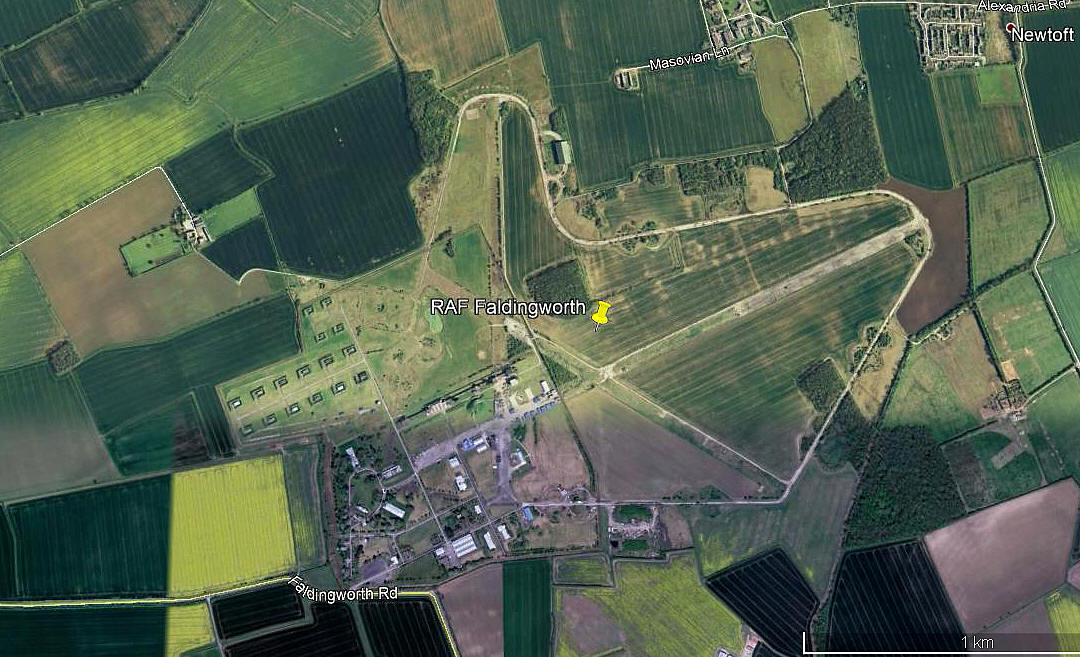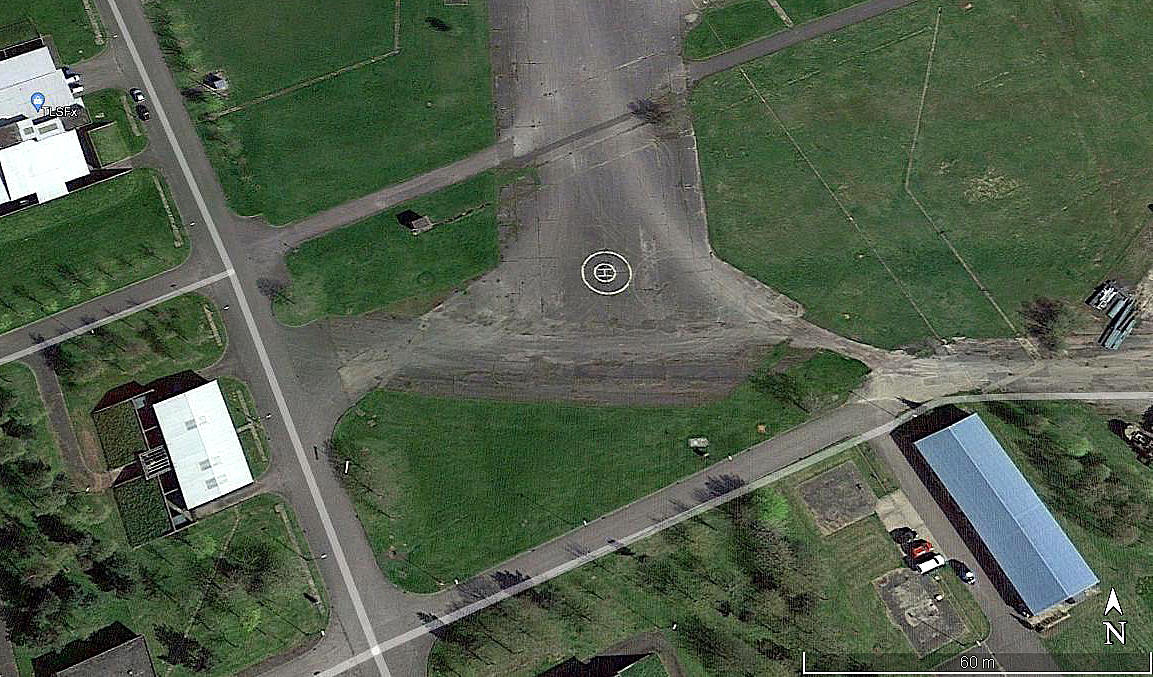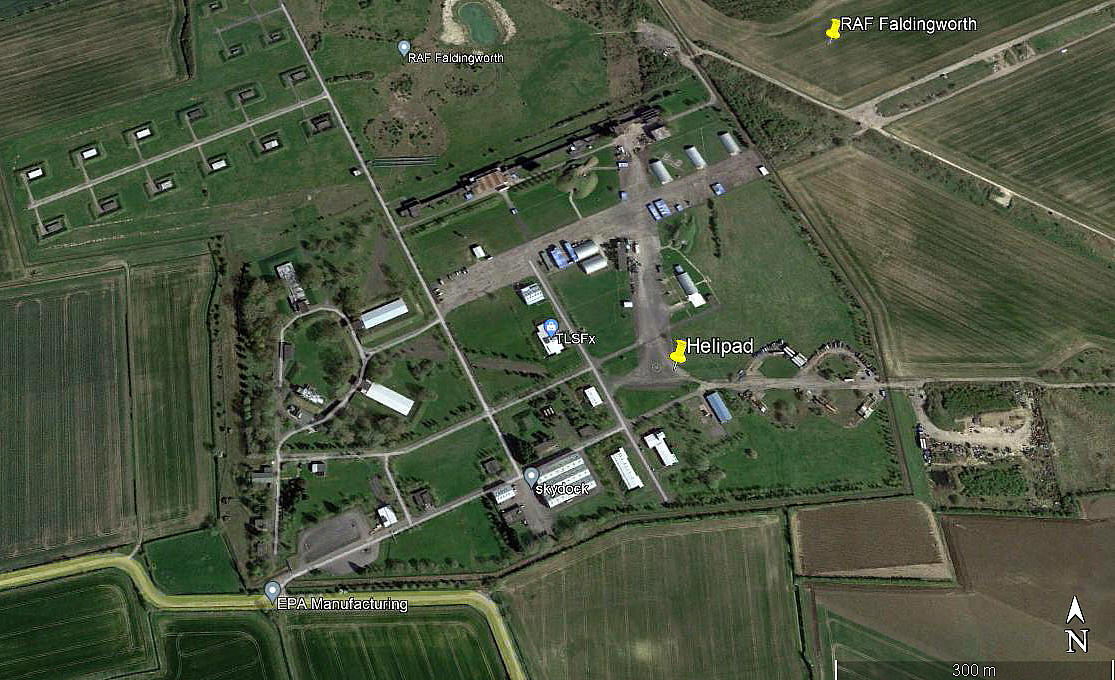Faldingworth
FALDINGWORTH: Military aerodrome (Originally Toft Grange decoy airfield)
Later: Private helipad (situated at the southern end of runway 01/29)
Note: These pictures were obtained from Google Earth ©
Military users: WW2: RAF Bomber Command 1 Group
1667 HCU (Presumably Vickers Wellingtons initially, later Avro Lancasters?)
300 (Polish) Sqdn ( Wellingtons later Lancasters)
1533 & 1546 BAT Flts (Airspeed Oxfords)
Post WW2: 300 (Polish) Sqdn (Lancasters)
305 (Polish) Sqdn (DH Mosquitos)
Note: I think there might be some debate about 305 (Polish) Squadrom flying the Mosquito at the end of WW2?
Location: ESE of East Firsby Grange, N of Faldingworth Grange, 5nm SW of Market Rasen
Period of operation: 1943 to 1972
Runways: WW2: 07/25 1829x46 hard 13/31 1280x46 hard
01/29 1280x46 hard
NOTES: One aspect of the Bomber Command training structure I hadn’t appreciated until looking into the subject was that quite often crews under training at HCUs (Heavy Conversion Units) were often taking part in some operational raids.
Sometimes referred to and, it seems, often certainly thought of as being by operational crews, (in so many words), ack-ack and night-fighter fodder and therefore performing a somewhat sacrificial role to a large extent allowing a slightly better chance for more experienced crews to ‘get through’ to the target.
The ultimate irony being that invariably an instructor or two had to go along too, whilst ostensibly being ‘off-ops’after completing a ‘tour’. Incredible though it may seem today I have found no record of any instructor refusing to fly on these HCU missions.
In 1985 used for explosive testing & storage.
THE HELIPAD
If the dating system on Google Earth can be relied upon, which is highly questionable of course, it would appear that the helipad was first marked out in 2006. It also seems reasonable that it is a facilty provided by the site owner/operator for use by clients of the various businesses based here.
As always in this 'Guide', if anybody can offer advice, this will be most welcome. Plus of course, any pictures of visiting helicopters will be much appreciated.
We'd love to hear from you, so please scroll down to leave a comment!
Leave a comment ...
Copyright (c) UK Airfield Guide



















